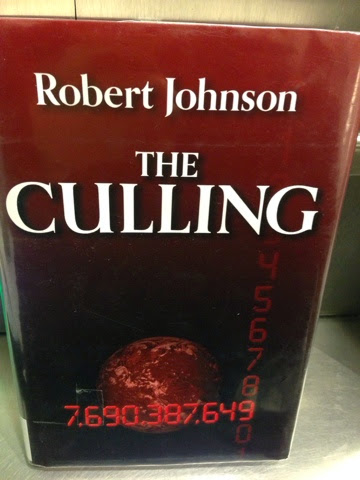Synopsis:
 |
| Hardback copy |
Jamie has demons of his own. Wed to his guitar from the age of thirteen, he plays in bands across the country, living the nomadic lifestyle of bar-band rock and roll while fleeing from his family’s horrific loss. In his mid-thirties—addicted to heroin, stranded, desperate—Jamie meets Charles Jacobs again, with profound consequences for both men. Their bond becomes a pact beyond even the Devil’s devising, and Jamie discovers that revival has many meanings.
Review:
I can finally say that I have found a Stephen King novel that I truly, truly love. Not liked. The novel's conclusion is terrifying. I was left thinking about my own destiny for several days after finishing it. What happens after it all ends? Jamie discovers the answer to this question and it's one that I dreaded so much, maybe because these thoughts plague everyone from time to time. People like to think that there's a light at the end of the tunnel. Maybe there's not. What made this novel utterly terrifying was not any monsters or psychos or any other 'horror' tropes. What made this novel terrifying was simply not knowing.
Who knew?
I'm very much aware that many King fans were disappointed thinking this story would be a straight horror novel, and if that's what you are expecting, don't bother with reading it. We don't get anything 'scary' until the last act. Let me give you the gist:
The story centers on Jamie from the age of six all the way into his sixties. You are introduced to his family, his town back in the 'good' old days, and life around a religious town and the new pastor in the neighborhood church. Charles Jacob. The man is fascinated with electricity and whenever he can, he applies his discoveries to his preaching. He has a wife and small child. Our main character loves him and so does the rest of the town until the TERRIBLE SERMON.
The terrible sermon was one of the reasons I enjoyed this novel. The thoughts and conclusion the Rev. states in the midst of grief are very similar to my own. I also grew up in a very Christian home and had a lot of questions. I enjoyed his speech but was saddened by the reason he came to it. Tragedy does make us see the world a lot differently. I won't reveal more than I have to in this review. I hate spoilers. Just know that the pastor ends up leaving town but also leaves a mark in little Jamie's heart and life.
Later, Jamie grows up to be a musician and is deep into drugs. A theme Stephen King uses a lot. You know what they say, draw from life experiences. However, this here is where the story lost a tad of momentum. Jamie's drugs and musical life turned the story into a whole different one. Not at all the novel we started out with, the one that had me reading the first act in a single night. The second act sat too long in secrecy and Jamie went on and on discussing old musicians and bands and you know, all that shit that starts in E. It got a tad tedious after a while. I was almost let down until Rev. Danny came back into the picture.
Throughout the novel we are hinted at the strange electricity Charles Jacobs is working with. One that has cured and been curing people for decades, but leaves aftereffects that in some cases can be fatal. Jamie grows more curious as he himself gets a volt dosage and well, Something Happened. The last act concentrates on finding out all the answers and the conclusion is one you are either going to love or hate.
The book as a whole had its ups and downs. Mostly ups. There were so many passages that I loved. The characters intrigued me. I would have liked to have seen more of the family instead of the musical people in Jamie's life. And I'm not completely convinced that Jamie would have gone out of his way to help Jacob at the end. But overall, the novel was a great read that I deeply recommend.

